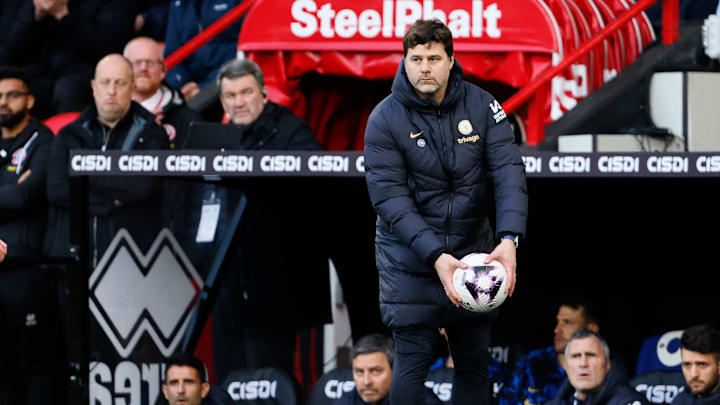Recently, Chelsea's soccer coach Mauricio Pochettino waded into a debate commenting on his team's immaturity after a frustrating draw against Sheffield United. His subsequent statements reveal a new tone, suggesting either a strategic shift or simply reflection on his own words.
Pochettino initially didn't hesitate to point out immaturity as one of the obstacles faced by Chelsea. The analysis wasn't without merit, given the young profile of the Blues' squad, whose average age is one of the lowest in the Premier League. The coach seemed to backtrack from his initial stance, opting for a more measured approach.
Follow The Top Flight on X (Twitter).
Pochettino emphasizes the need to instill confidence in the players, acknowledging the positives of coaching a young team. This change in tone raises questions about the effectiveness of his previous criticisms. Is immaturity a true weakness of the team, or just a natural phase of development requiring patience and support?
The dynamics between coach and squad are a crucial element in a team's success. Pochettino, by recognizing the importance of being more cautious with his words, suggests a new approach to dealing with the challenges faced by Chelsea. Does this change in posture reflect a calculated strategy to motivate the players and deflect attention from external criticisms, or is it a genuine reconsideration of his previous observations?
The truth is that the world of soccer is fluid and complex, and answers are not always clear. While Pochettino seeks to find a balance between acknowledging his team's challenges and inspiring confidence, Chelsea faces a battle both on and off the pitch. With the prospect of missing out on European competitions for the second consecutive year, the pressure on the club is palpable.
Managing a soccer team goes beyond tactics and formations on the field. It also involves managing expectations, motivating players, and building a culture that fosters long-term growth and success. Pochettino, with his experience and vision, seems to be aware of this fundamental aspect of his role as a coach.
